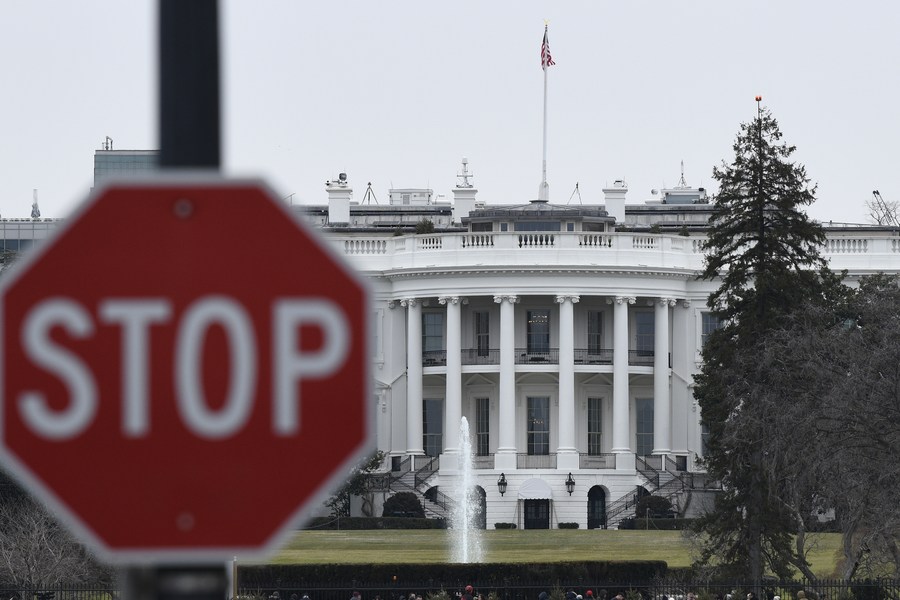
File photo shows the White House and a stop sign in Washington DC, the United States. [Photo/Xinhua]
This is an editorial from China Daily.
United States President Joe Biden will host a special summit for the Association of Southeast Asian Nations leaders on May 12 and 13 in Washington, according to a statement by White House Press Secretary Jen Psaki.
The purpose of the summit is to "demonstrate the United States' enduring commitment to ASEAN ... and commemorate 45 years of US-ASEAN relations", according to a statement issued by the White House. Considering the meeting was convened in late October 2021, this one certainly will be special in some ways.
It will surely provide some clues as to whether and how the US will adjust its global strategic deployment in light of the ongoing conflict in Ukraine and its geopolitical impacts on major country relationships. In particular, how it will approach the Asia-Pacific, or what it perceives to be the Indo-Pacific, in the future.
Despite the hostilities in Ukraine, as has been the case for other summits and meetings organized by the US, many believe China will be a "likely focus" of the summit.
When it comes to what the US perceives to be "the region's most pressing challenges", for instance, it is very unlikely that China will not be to the fore in the corresponding discussions.
Although ASEAN countries may be more concerned about such immediate concerns as internal unity in the aftermath of the political change in Myanmar as well as domestic and regional economic hardships and giving impetus to economic recovery, there simply is no way to distract Washington from its obsession with the South China Sea as the venue for its "competition" with China. Even as countries in the region have generally found peace between and among themselves and are now working toward a common code of conduct for the waters of the South China Sea.
Based on what Washington has been saying and doing, it is almost impossible to imagine that it will not take advantage of the summit to nurture the seeds of distrust that it has been trying to cultivate between ASEAN and China. After all, in the typical Washington narrative, Beijing is the single largest threat to its vision of a "free and open, secure, connected, and resilient" Indo-Pacific.
Correspondingly, Beijing has read US diplomatic maneuvers in the region as aimed at creating an Asia-Pacific version of NATO, with the intention of damaging the regional cooperation framework centered on ASEAN.
Washington climbs from one step of ambition to another, playing a geopolitical game in the guise of promoting regional cooperation. Professing it wants to protect others from injury, it acts to injure others.
ASEAN members should treat with caution the stirring rhetoric and brave promises meant to align them to Washington's purpose.

 中文
中文





